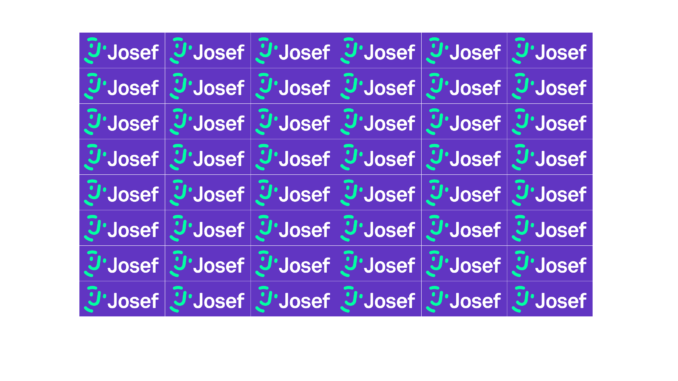
Amid a tough market for funding and increasing competition between the multiple no-code players in the legal sector, Australian startup, Josef, has bagged Aus5.2 million (US$3.48m) in a ‘pre-Series’ investment to help boost its US expansion. However, they would not comment on whether previous investor, The Legal Tech Fund, had joined the new round, which this time was led by OIF Ventures.
Josef CEO, Tom Dreyfus, told Artificial Lawyer that unlike some companies they were focused just on legal and that ‘people do see the differences between the [no-code] companies. We aim to help build a legal automation workbench for every lawyer in the world.’
Asked about the tough environment for funding and valuations, he noted: ‘We are happy with how it landed. 2022 was a difficult year for fundraising, including in legal tech. I think that we raised the round that we need right now.’
According to Crunchbase, total previous funding was $3.2m, so this should bring them up to around $6.7m since they got started, which in terms of really engaging with the market was in around 2019.
Dreyfus added that the questions they got this time from potential investors were very different to the last time they looked for cash. He stressed that they’d been able to show how capital efficient they had been and proven that they had solid fundamentals that would work in any market.
He added: ‘These were not the same questions asked in 2021. No-one had a crystal ball in 2021. Some raised enormous rounds and that could be a really great thing for their business. [But] we are fortunate we are not in that position.’
The new round, as noted, was led by OIF Ventures, along with Carthona Capital (which played a key role in the last round), plus Flying Fox Ventures and Jelix Ventures.
Dreyfus said a new director role would be created for Australia’s OIF Ventures after the investment, but they could not name the person yet. He added that OIF has a track record for backing companies that have sought to grow in the US market. At present, director roles are held by execs at Josef and there is one role held by Carthona Capital.
Asked specifically about The Legal Tech Fund, which had in the past invested in Josef, Dreyfus said: ‘We can’t say all who have invested, but they continue to support [us].’
He also highlighted that they were now working with US tech-focused law firm Gunderson, which is a notable client win, and they are also working with a growing number of corporates. In the past they have helped corporate legal teams to build suites of self-serve capabilities from FAQs for legal questions to doc generators.
Overall, a positive move for the company, which has tied its strategic growth plans to the US market where it already has a small office. They have about 30 staff in total, in Oz, US and the UK.
The wider question now is: how many no-code automation companies can the legal market sustain?
We started with Neota some years ago and long before it used the term no-code, then there was Autto and Autologyx, then BRYTER and then several more, and most recently Betty Blocks, which works in multiple sectors and has also started to focus on legal. Moreover, giant companies such as ServiceNow are also trying to win more corporate workflow projects that connect to legal. And there are other companies that also overlap with this field.
Can the market support so many? For now the answer is probably: yes, because as with many areas of legal tech the market is still highly atomised, especially at an international and also at a local market segment level. That said, there are only so many large law firms that these companies can all chase at once. On the corporate side there is a much wider range, but those that are very receptive to this approach are not unlimited either.
For now the battle is still very open, but as with doc automation, eventually winners will start to emerge no matter how many players have been able to take some market share.
Thanks Richard. Your question on how many no-code automation companies can the legal market sustain is a very interesting one. On top of the players listed by you there are many document automation no-code players. Some consolidation (or exits) may be inevitable, but maybe not yet in 2023.